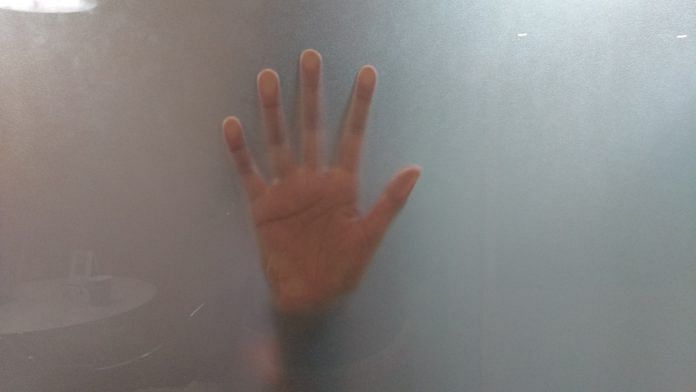Ms X, as the judge is publicly known, claimed in 2014 that a Madhya Pradesh High Court judge asked her to dance on an item song at a function in his house.
New Delhi: A former additional and sessions judge who alleged sexual harassment by a now-retired Madhya Pradesh High Court judge says she supports the #MeToo movement “wholeheartedly” and wishes it had started earlier.
“If I could have, I would have used the #MeToo movement and joined it,” said Ms X, as the judge has come to be known. “Instead, I became the first whistleblower to… speak about sexual harassment in the judiciary,” the judge told ThePrint.
The judge first made the allegation against Justice S.K. Gangele in 2014, after quitting the judiciary. She alleged that Justice Gangele, then her supervisor judge, sent her a message through the district court registrar to “perform a dance on an item song” at a function at his residence.
She was then transferred from Gwalior to Sidhi, leading her to resign on 15 July 2014.
Four years later, this July, she moved the Supreme Court seeking reinstatement. On Friday, the Supreme Court issued notice to the registry of the Madhya Pradesh High Court on her plea.
Also read: Tarun Tejpal’s gaming of legal system shows why #MeToo doesn’t believe in due process
‘Sexual harassment in judiciary continues’
The former judge says she has kept herself busy since she quit the judicial services.
“I now work pro bono with a senior advocate, and help victims who have been raped or sexually harassed.”
Ms X said not much had changed since she first spoke out.
“To date, there is no internal committee women judges can approach to complain about sexual harassment at the workplace,” she said. “Sexual harassment at workplaces continues for women in the judiciary.”
In 2015, 58 Rajya Sabha members moved a petition seeking impeachment proceedings against Gangele. The three-member panel set up by the Rajya Sabha to investigate the sexual harassment charges against Justice Gangele gave him a clean chit in December 2017.
The panel — which included Justice R. Banumathi, then the lone woman judge of the Supreme Court, Bombay High Court Chief Justice Manjula Chellur (since retired) and attorney general K.K. Venugopal — concluded that the allegations were not “proved beyond reasonable doubt”.
They gave Justice Gangele a clean chit even as they noted in their report that there was evidence on the record “suggestive of the respondent judge’s interference with the transfer and rejection of the representations of the complainant…”
Ms X said, as a judge, her efforts to raise the issue yielded no results.
“What upsets me more is that not only my complaint, but all the evidence I presented was also brushed under the carpet,” she said.
“I then understood that I had to get out of the system to fight for myself,” she said.
“I am hoping that now that the judge has retired, I will get justice for myself.”
Also read: #MeToo is necessary but not the final answer, says judge behind Vishakha Guidelines
‘No shame’
The current #MeToo firestorm underway in India has seen a lot of prominent people being identified as alleged sexual harassers and assaulters, including former editor and current minister M.J. Akbar, actors Nana Patekar and Alok Nath, and comedian Utsav Chakraborty.
An analysis of the names “outed” over the past 10 days reveals that more than 80 members of the Indian media and entertainment industry have been accused of sexual harassment or assault.
“It is shocking when instances of women facing abuse in the media, entertainment and fashion industry, or corporate sector come out,” Ms X said. “But the judiciary is sacrosanct. It is the defender of the Constitution and people’s rights. For something like this to happen within the judiciary is even more shocking.
“There is no shame in naming yourself and calling out your abuser,” the former judge said. “I am of the opinion that one should come out and say, ‘Yes, I was abused’. I am only keeping quiet and not naming and shaming because the matter is subjudice.”



